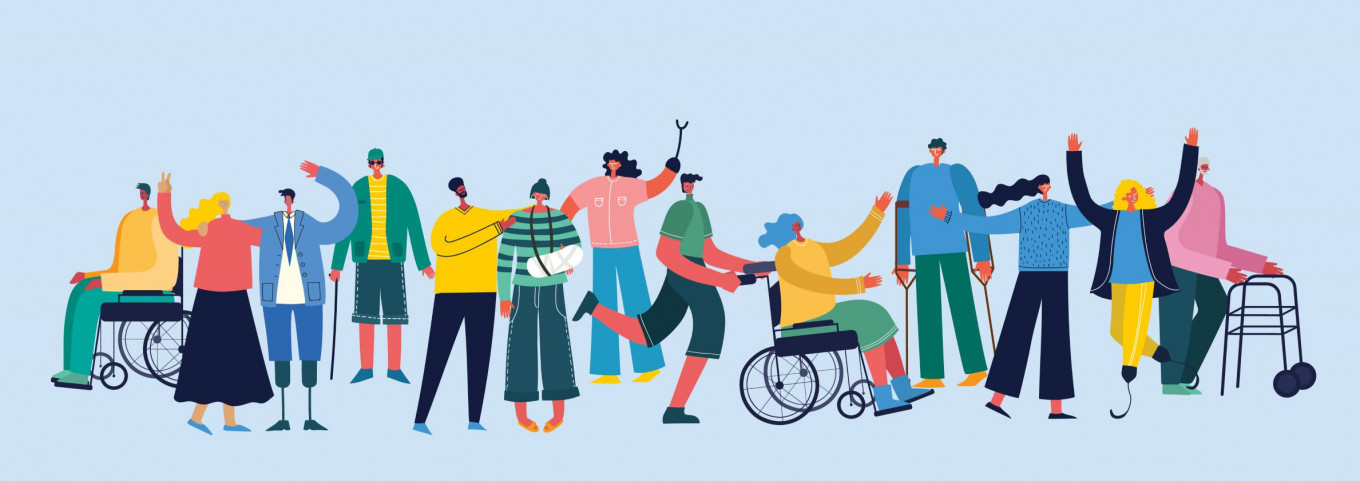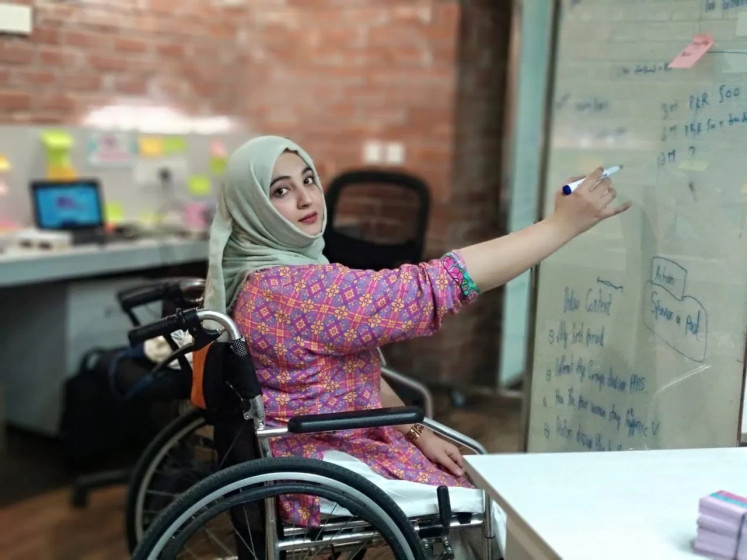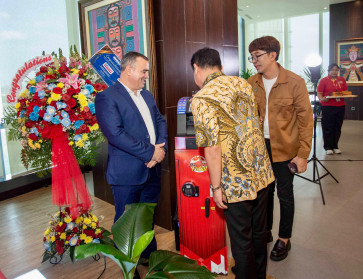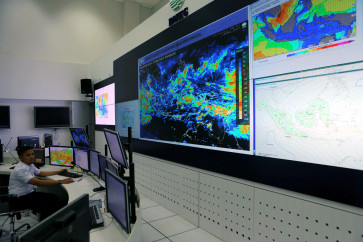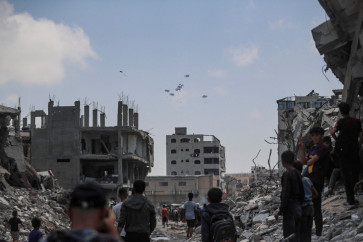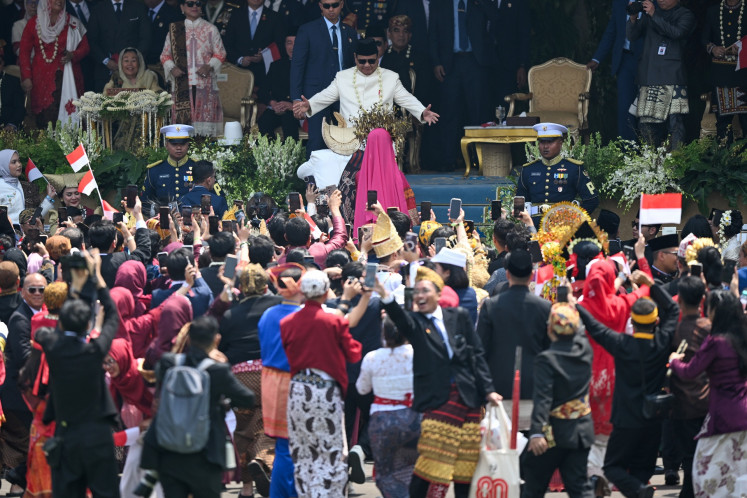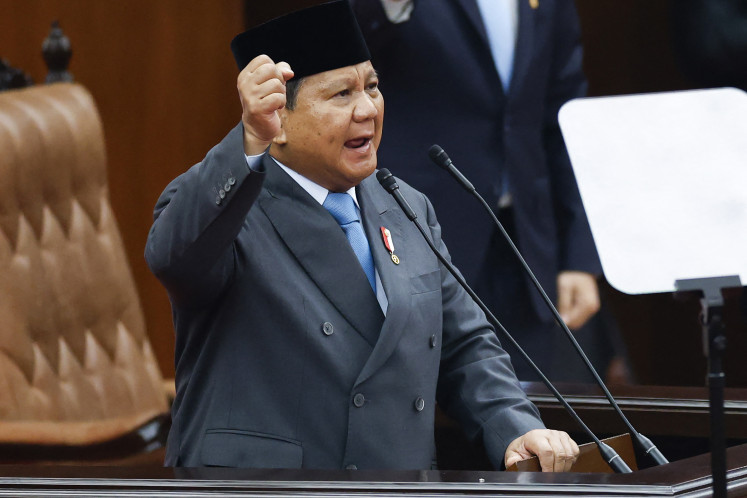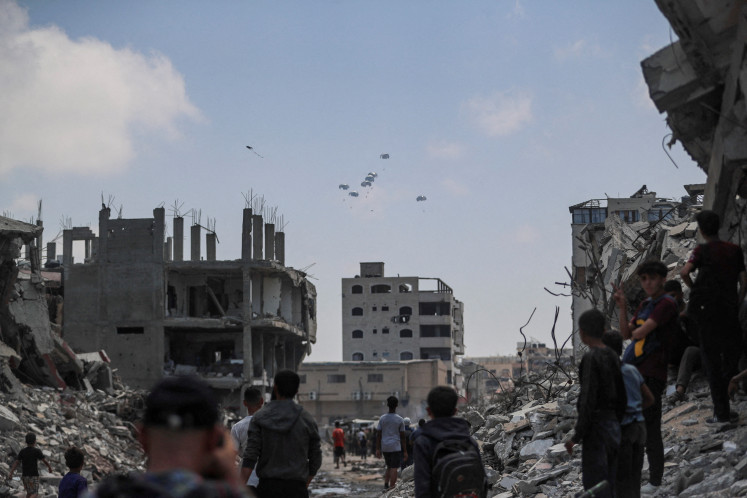Popular Reads
Top Results
Can't find what you're looking for?
View all search resultsPopular Reads
Top Results
Can't find what you're looking for?
View all search resultsConnecting the dots: Reproductive rights & disability
Disability is still largely a taboo subject – and if combined with sexual and reproductive health and rights, it becomes a hard issue to digest for many.
Change text size
Gift Premium Articles
to Anyone
M
any people with disabilities struggle with their identity and with fitting into society, often feeling isolated and lacking access to many things – from disability-friendly buildings to supportive policies.
Talking about sexual and reproductive health and rights (SRHR) alone is hard for some, let alone for persons with disabilities (PDWs).
“To talk about SRHR is a challenge even for a normal person and it becomes even more challenging for a person with a disability. But nothing is a challenge if you use the right language,” said Tanzila Khan, founder of Creative Alley in Pakistan.
Confined to her wheelchair since birth, Khan works to bridge the gap between disabilities and SRHR through her organization, which promotes young talent through trainings, projects and events.
Khan said she was aware that, despite coming from an orthodox society that is not supportive toward women, her power was her public speaking.
“I could always apply my advocacy skills, and now my entire family is on board. So my first leadership project was my own family and my society around me,” said Khan, who says her privileged background is what gave her access to education.
Khan was a plenary speaker at the 10th Asia Pacific Conference on Reproductive and Sexual Health and Rights (APCRSHR10), held online as part of a series organized by the conference’s steering committee, the UNFPA and Citizen News Service (CNS).
She said advocating for SRHR was a challenge for any organization working in Pakistan, and to highlight these taboo issues for people with disability at the government and policy level she had to think of innovative ways.
Her team came up with creative ideas – from creating plays and films to holding workshops – to generate a focus on a taboo subject in the community.
“Disability in itself is a taboo subject, and if combined with SRHR, it becomes like a double scoop ice cream that is difficult to digest for many people, including policymakers and leaders, who are already intolerant,” Khan said.
One of the concepts is to use video and theater.
“Our theater technique was not just a play that one [simply] watches, but being a part of the play – where we would make the audience become the actors,” Khan said, adding that, through the play, they let people address their own biases in an enjoyable way.
Other projects, which include workshops with women with disabilities, give them more insight into what goes beyond SRHR and where the gap lies.
“We try to bring all communities together. We do not work only for people with disabilities, as this is likely to alienate them,” she said. “They are a part of society, and they require inclusion. Only then can they feel that they are part of the solution and not just part of the problem.”
Her latest project, Girly things, refocuses on empowering young women, giving them menstrual healthcare information and access to products and services that are regularly available and are also environmentally friendly.
In another initiative, Khan and her team created a short film on Comedy and disability, which she said was the very first such content to be produced in her country.
The film centers on a girl who has a disability and is not seen as a sexual human being – a girl who has bills to pay or who might want to get married and have children.
“This is what many of us as people with disabilities face. We are expected to become motivational speakers. We are not allowed to frown or cry. We are asked: ‘Are you crying because of your disability?’ I said: ‘No, we have other problems, too, like any other person’. This mindset also has to be changed. Our short film ignited a discussion around this.”
Another speaker at the conference, Myanmar’s Colorful Girls magazine editor Phyu Nwe Win, disclosed during the Voice from the Frontline session that, in her country, several research findings suggested that PWDs had many unmet SRHR needs.
She said Myanmar was home to some 2.3 million people with disabilities or 4.6 percent of the total population, based on a 2014 census.
“This [unmet SRHR needs] is mainly due to false social perceptions that PWDs, especially young women and girls, lack sexual desire and therefore are unlikely to have SRH needs,” she said.
“SRHR is a taboo topic to talk about, and PWDs are rendered invisible in relation to SRHR. They are stigmatized and excluded from sexuality education programs due to a perceived lack of need.”
Tanzila Khan (Courtesy of femmerang.com/-)According to the WHO World Report on Disability, more than 1 billion people, or about 15 percent of the world’s population, have some form of disability. Some 690 million of them are in the Asia Pacific region.
Indonesia alone, according to 2019 National Social and Economic Survey (Susenas) data, is home to some 25.6 million PWDs, almost 10 percent of the population.
Even before the pandemic, PWDs were marginalized and not afforded equal access to public services and information, and now they face even greater challenges.
In March, a group of deaf people sent an open letter to President Joko "Jokowi" Widodo, calling on him to uphold the rights of people with hearing impairments to have access to all COVID-19 information.
Bagja Prawira, one of the activists behind the letter, previously told The Jakarta Post through an interpreter that, with little to no access to information, many deaf people he knew continued to live their lives as normal – without fully understanding the dangers of the pandemic.
“We are facing a disaster, and we have the right to access all information about it,” Bagja said.
Under Law No.8/2016 on PWDs, authorities should provide access to public services, information and protection during disasters.
However, an online survey conducted by the Indonesia Disability Network (JDI) in April this year, which involved 1,683 respondents with disabilities from 32 provinces, showed that only around 60 percent of people with disabilities had adequate access to information about the pandemic and how to avoid infection.
Khan said the entire battle for PWDs was about access, about being part of a public space – pulling them out of their shells and cocoons.
“So disability is not a concept that is limited to one particular body type. It is a mindset. It is an attitude, and many times even the structures in place have a very disabling attitude. Sometimes some attitudes can disable an entire nation or entire community that has a perfectly able body with no impairments,” Khan said.
“Do not treat people with disabilities just as a beneficiary. They have so much to contribute, so much knowledge to share,” she added. “Because of my disability I was able to identify the disabling attitudes of society.”

